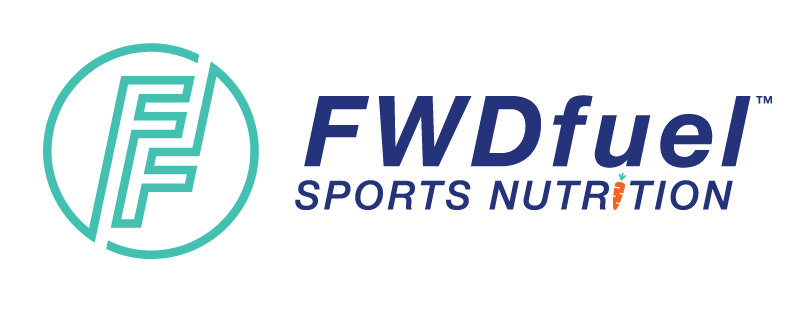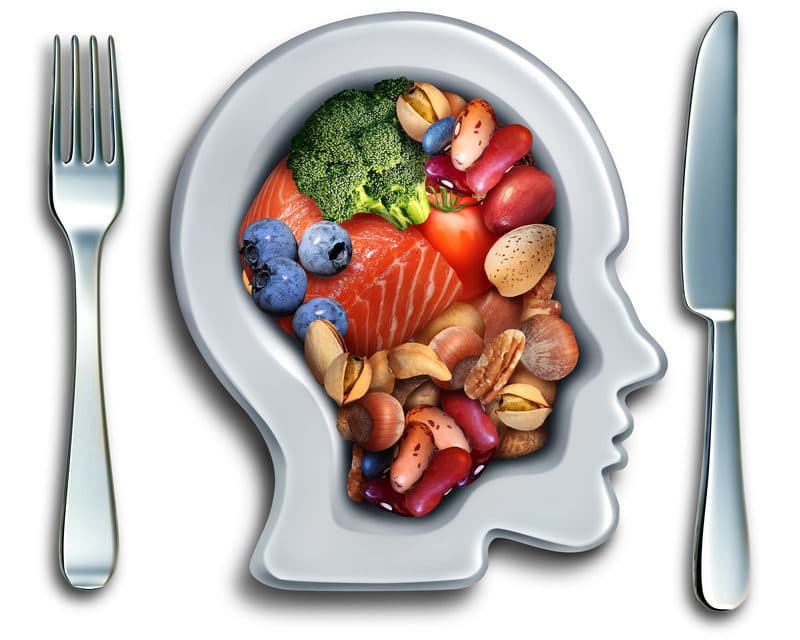Conventional approaches to sports nutrition emphasize the need to drink milk in order to prevent and treat injury, as well as to obtain high amounts of important micronutrients. While there may be some benefit to dairy products for some individuals, many may choose not to consume dairy because of a food intolerance or personal preference. For those who prefer this route, we’re going to show you how to successfully consume adequate calcium in amazing non-dairy calcium-rich foods!
Why are Non-Dairy Calcium Sources Important?
While it is no secret that calcium is important for optimal bone health, blood pressure, and other cellular functions in the body, athletes have an increased need for calcium for many reasons. Athletes who eat dairy-free and who do not particularly care for many veggies, are at a higher risk for being calcium deficient. It’s important to explain why we want to prevent this, not only for long-term health but to maintain optimal athletic performance and recovery.
- Calcium is excreted in sweat: Everybody excretes vitamins, minerals, and electrolytes in their urine and sweat, and calcium is one of those minerals that when lost, cannot be made by itself in the body. As athletes, we are losing even more sweat than the average person, because of sweating during exercise.
- Important for muscle contractions: We’ve all woken up in the middle of the night to those Charley horse muscle cramps haven’t we?! Not fun. Calcium is extremely important for our muscles to function because it binds to various proteins that are necessary for our muscles to move. In the absence of calcium, these contractions cannot happen, resulting in fatigue and those dreaded cramps!
- Bone Health: If there is one thing every athlete has in common, it’s the sheer hate of an injury. As athletes, our bodies are put through a great deal of mechanical stress, which is supported by having strong bones. Calcium is extracted from the bones when not readily available in the body, which can increase the risk of bone fractures and other health consequences like low bone mass (osteopenia) and osteoporosis.
We Don’t Want to Rely on Dairy
It might be easy to forget that it’s the calcium found in dairy that provides such great benefit, not the dairy products themselves! Using dairy as your primary source of calcium also means a diet high in calories and fat. These sources of fat are usually not the best options.
Dairy products are often found to be high in saturated fat. Although saturated fat can be beneficial to an individual’s body when consumed in the proper amount, many of these products are over consumed in the typical American diet. When consumed in excessive amounts, saturated fat can result in unwanted weight-gain, increased risk of chronic disease, and other overall negative health effects. Not to mention our agricultural practices have changed for worse over the past few decades thereby changing the quality of cow’s milk.
Eating non-dairy sources of food contain many other essential nutrients that are not only important for calcium absorption, but for maintaining overall health and wellbeing. Just a few of these nutrients include vitamin A, vitamin C, vitamin K, folate, fiber, anti-oxidants, and contain higher amounts of heart-healthy omega 3 and omega 6 fatty acids.
Why Might Dairy Be Bad For Me?
It might be hard to wrap your head around why you should refrain from eating these foods. According to U.S National Library of Medicine, over 75% of people have some form of intolerance to dairy. You may not even realize you have a food sensitivity to dairy if you’ve never gone without eating it. Regardless if you have experienced symptoms related to a dairy intolerance, your gut and overall health can be negatively affected with continued dairy intake. It has been shown that ingesting dairy can actually create intestinal damage in the GI tract.
Finding substitutions for food allergens such as dairy can be intimidating or annoying, but this is a critical aspect of an individual’s nutrition and athletic performance that should not be ignored!
There are so many foods we truly enjoy eating and have never gone without. However, think about how eliminating these foods may help alleviate chronic illness with food, decrease discomfort, as well as tremendously improve athletic performance.
Every individual’s body is different, which means we should feed our bodies with food that will allow it to function in the best possible way. With the striking increase of dairy intolerance, sensitivity, and allergy being diagnosed today, it can’t hurt to further investigate your body’s personal relationship with dairy.
Rock Star Non-dairy Calcium-Rich Food Sources
Let’s talk about some of these non-dairy calcium-rich foods. Contrary to popular belief, there are many calcium-rich foods in plant-based and other non-dairy sources. Surprisingly, they are often times in higher quantities than the cherished dairy products we have relied on for years. It is a common misconception that individuals who are lactose intolerant are bound to experience calcium deficiency. However, many non-dairy foods serve as rich sources of calcium. Here are some examples:
- Cruciferous veggies: broccoli, cauliflower, turnip, bok choy, collard greens, brussels sprouts, spinach, and kale
- Fish: salmon, sardines, anchovies, and tuna
- Legumes: chick peas, white beans, kidney beans, navy beans, pinto beans, lentils, peas, and edamame
- Nuts and seeds: walnuts, pecans, almonds, and peanuts
- Tofu
- Select Fruits: Oranges, Tangerines, Apricots, Kiwi, Dates, Dried Figs, Rhubarb, Prickly Pears, Prunes, Mulberries, Kumquats
Absorption of Calcium
Like many other vitamins and minerals, calcium does not work alone. When other minerals like magnesium and vitamin D are consumed in adequate amounts, calcium absorption is increased! Ensuring you are not deficient in magnesium or vitamin D is extremely important for calcium regulation in the body.
Although some foods may be listed as “good sources of calcium” our body’s ability to absorb that calcium can be dependent on many factors. Typically, we are only going to absorb around 30-35% of the calcium content that we eat; therefore it’s important to be mindful of how much calcium you consume at once and with what other foods you consume calcium. Consuming 500 mg or less of calcium at one time will help promote calcium absorption and decrease the amount excreted.
The National Institute of Health provides that certain nutrients such as phosphorous and phytates, contained in various foods like grains and berries can compete for absorption. Other research supports that supplementation of certain essential fatty acids and amino acid lysine can help prevent calcium excretion and promote better absorption in the body. There are tools available to see which food sources are better absorbed, which can be important for athletes who are getting all of their calcium from non-dairy sources.
Am I Getting Enough?
It can be hard to know if you’re eating the right amount of calcium, I get it! It’s not like we go about our day keeping a calculator going of our calcium intake. The best place to start is by taking a closer look at your food labels to get a better idea of whether or not you’re reaching the recommended daily allowance of at least 1,000-1,3000 mg/day. Our bodies will begin to take the calcium from our bones if we aren’t eating a sufficient amount of calcium. This, in turn, will affect many aspects of our daily life. You may begin to feel fatigued or you may start experiencing nagging injuries that just don’t seem to heal. Pay attention to your body!
Kylene often recommends for her athletes to take notes on their phone for two days regarding calcium intake. A quick and easy trick is to look on the back on a label at the percentage of calcium in a food. Drop the percentage, add a zero and now you have mg! So if your serving of nuts contains 10% calcium, this amounts to 100 mg. Keep track of the mg throughout the day and aim for roughly 1,200 mg. In certain cases, your doctor may request a higher goal for your daily calcium intake.
So now that we know 1,200 mg is typically the sweet spot for most athletes, let’s review how you can meet this mark in a day of eating:
Breakfast: Add 1 cup of unsweetened almond milk to your morning oats or smoothie (this will depend on the brand) 300-500 mg
Lunch: 3-4 oz Grilled Tofu for Lunch (300-400 mg), 1 cup of spinach side salad sprinkled with 1-2 TBSP sesame seeds ( 60 mg). For those who do not eat soy or those who are just brave souls, 4 oz of sardines contains 430 mg calcium!
Snack: 1/2 cup dried figs and 1/4 cup walnuts ( 35 + 20 = 55mg)
Dinner: 1 cup lentil soup ( 45 mg), 2 cups sautéed dark leafy greens (150-200 mg), 1 cup of cooked amaranth (120 mg)
Eating a diet with adequate dietary calcium and supplementation is going to be crucial for optimal athletic performance. If you feel that it is too difficult to consume enough calcium through non-dairy sources, a supplement might be necessary to ensure you’re supporting your body’s need for this important mineral.
Can We Consume Too Much Calcium?
Where to Go From Here
Hopefully, from reading this you can see how important calcium is for every individual, athletes especially. Calcium is important for many processes in our bodies and it is a mineral that should not be neglected. It is also important to note that the key to bone health does not start and stop with calcium.
Equally important may be having proper gut health including the balance of gut bacteria to properly digest our foods to absorb vitamins K and D. Without properly absorbing vitamins D and K, our body is unable to absorb the calcium we ingest to help us build bone. It is well studied that many women with diets full of dairy products and calcium supplements still have bone density issues. So, we can take in all the calcium we want but if it is not being absorbed, we may still end up with health issues.
While many avoid dairy because of a food allergy or sensitivity, others may simply avoid it to decrease consumption of a food that is arguably inflammatory and detrimental to performance. Finding substitutions for some of your favorite foods can be a challenge and it may be helpful to check out some of the best substitutions for the top 8 allergens. Regardless of the reason for seeking non-dairy sources of calcium, its important to realize that getting enough calcium is more than possible, even for athletes!
References:
https://www.niddk.nih.gov/health-information/digestive-diseases/lactose-intolerance
https://www.niddk.nih.gov/health-information/digestive-diseases/lactose-intolerance
http://glutendoctors.blogspot.com/2009/10/dairy-and-how-it-can-damage-intestine.html
http://drhyman.com/blog/2015/02/13/healing-meals-bone-broth-recipe/
https://ndb.nal.usda.gov/ndb/nutrients/report?nutrient1=301&nutrient2=&nutrient3=&&max=25&subset=0&offset=0&sort=c&totCount=8160&measureby=m
https://ods.od.nih.gov/factsheets/Calcium-Consumer/.
https://www.sciencedirect.com/science/article/pii/S0889157506001062.
https://chriskresser.com/calcium-supplements-why-you-should-think-twice/.
https://www.globalhealingcenter.com/natural-health/10-fruits-rich-in-calcium/









Trackbacks/Pingbacks